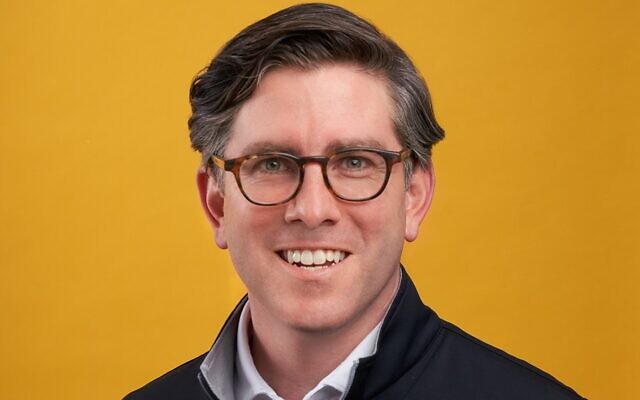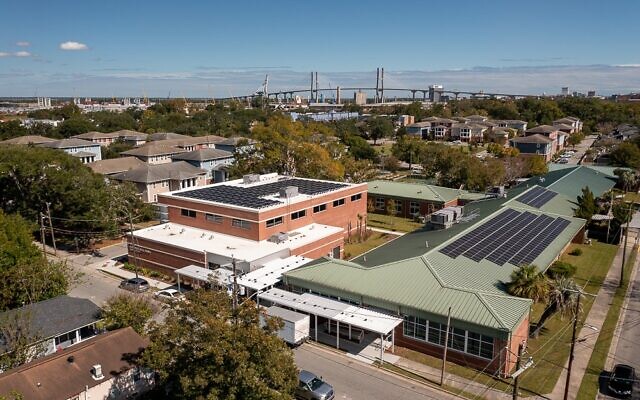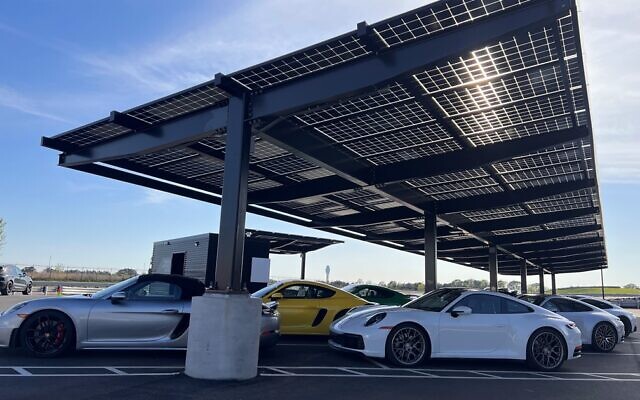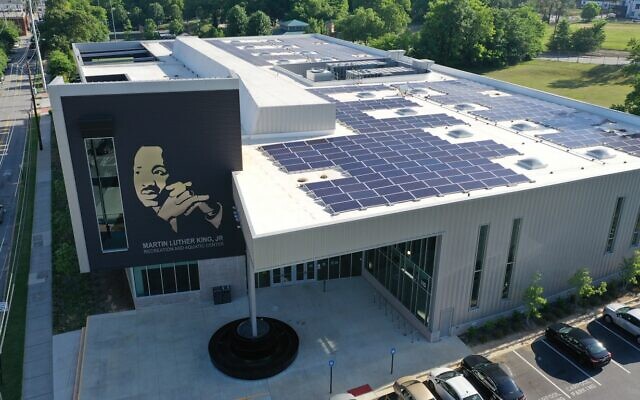Chanin, Cherry Street set to ‘Energize’ Temple Sinai
Michael Chanin, through his Cherry Street Energy business, is driving the transition to a low carbon future, and is working with Temple Sinai to derive 30 percent of its energy from rooftop solar power.
After 37 years with the Atlanta Journal-Constitution and now with the AJT, , Jaffe’s focus is lifestyle, art, dining, fashion, and community events with emphasis on Jewish movers and shakers.

As the world places innovating new sources of energy as a top tier priority, Macon native Michael Chanin is doing something about it.
With his background in structured financial products and growth-oriented businesses, and with a passion to “Do Good and Do Well,” he founded Cherry Street Energy (named after Cherry Street in Macon where his grandparents had a clothing store). With the initial vision to build a renewable power company capable of driving the inevitable transition to a low-carbon future, Cherry now serves as Georgia’s foremost non-utility provider of renewable power.
In Chanin’s pledge of action to tikkun olam, Temple Sinai will begin incorporating Cherry’s renewable power into its operations this month, when the crews will begin a solar power plant on the temple’s roof, providing ~30 percent of its electricity. The temple will become one of the first communities of faith in Georgia to incorporate renewable energy, leading by example.

“Temple Sinai has made climate change in our community a priority and we have a dedicated committee that works to address this through a variety of ways,” said Temple Sinai Rabbi Brad Levenberg. “We have implemented many important initiatives including composting, building enhancements to reduce energy use, educational campaigns to our members and more over the past several years. We are now in the process of installing solar panels on our building that will continue to help lower our overall carbon footprint.”
After attending Congregation Sha’arey Israel in Macon, Chanin went on to Northwestern University, majoring in American studies and history. After that, he went on to Cambridge University and received a Master of Philosophy focused on economics and the developing world. He then worked in banking for 10 years at Goldman Sachs in the Special Situations Group, followed by SunTrust Robinson Humphrey, providing capital to technology and media companies.
Cherry Street Energy currently operates more than 100 solar facilities in Georgia. Chanin said, “We pride ourselves on an innovative business model that eliminates upfront costs, incremental fees, and ongoing maintenance costs for our customers. Our competitive edge lies in offering predictably priced clean energy and preparing for enhancements to our solar installations with increased capacity, energy storage and electric vehicle charging options.”

Servicing Georgia as the largest and only provider of renewable energy solutions on a portfolio basis, his customers include local governments such as the cities of Atlanta and Savannah, counties of Athens-Clarke, Fulton, and Macon-Bibb, and major institutions like Emory University, Emory Healthcare, Porsche Cars, and Gulfstream Aviation.
As Cherry Street Energy’s CEO, he leads a team of builders who develop, construct, operate, and maintain critical infrastructure, powering the communities they serve. He maintained, “Together, we develop a meaningful platform to lead the necessary and inevitable transition to a 100 percent renewable power future. Our focus is on establishing a repeatable and scalable process to rapidly accelerate the adoption of renewable energy. I prioritize equipping each team member with the necessary tools and resources for success. My role involves shaping our strategy and vision to establish the most impactful path for our business. It’s an opportunity to effectuate change in our community and lead the future of sustainable energy.”

Working in a cutting-edge field requires kindness and curiosity. Many challenges he faces in building the business require collaboration with stakeholders who are not familiar with the product or the technology for solar power. He continued, “Teaching new technology to those unfamiliar requires a measured and compassionate approach.”
As a power company, Cherry Street will sell electricity to Temple Sinai at rates less expensive than the utility company. Cherry Street was the first company with this business model (no up-front cost, lower electricity bill, achieve sustainability goals) in the state of Georgia. Temple Sinai will purchase electricity through a solar energy procurement agreement; and Cherry Street installs solar arrays that it owns, operates, and maintains for its customers.

“We believe in tikkun olam, repairing our world, and we are doing as much as we can to make an impact in our local community and the world,” Rabbi Levenberg said.
Cherry Street’s service removes the typically large upfront investment involved, as well as the ongoing maintenance costs after incorporating solar power. Their customers pay only a monthly power bill for the electricity they use, which is competitively priced with the utility.



comments